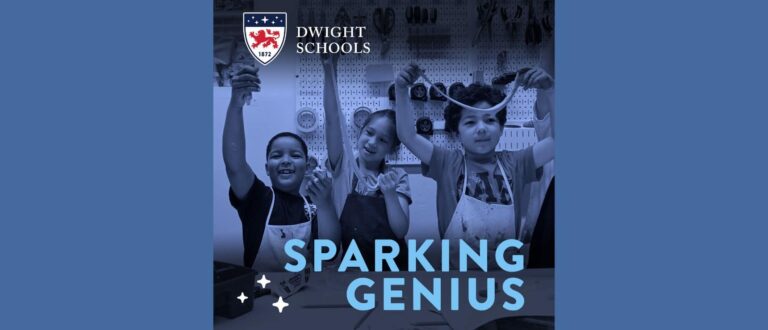While the fundamentals of preparing for a secondary school interview haven’t changed, there’s an added layer of complexity to navigate this year. With most secondary school interviews taking place virtually, students who used to worry about losing their train of thought now have to worry about losing their wifi connection as well!
However, with a little extra planning, your student can make a great impression in their virtual interview. Fay’s secondary school counseling team has decades of experience preparing students for admission interviews. We gleaned their best tips and advice for turning your child’s virtual secondary school interview into a real asset to their application.
Don’t fear a glitch
You can’t predict when a technology snafu like a frozen screen or lost audio will strike, so make sure your child prepares for it instead. If they are interviewing from home, reduce the potential for technical problems by minimizing the traffic on your wifi network during the meeting. Secondly, make sure your child has a plan in case of technical difficulties. The chat feature is useful for alerting the interviewer to problems during the interview. Any admissions officer will also be impressed if your child is organized enough to start the interview by asking for their cell phone number in case technical issues arise.
Practice, practice, practice
Have you heard the adage to practice like you play? Well, students should do at least one practice interview with an adult who is not their parent, and they should do it virtually. They can practice giving rich and informative answers to each question while also refining their virtual interview technique. Students should practice looking at the camera instead of the screen and staying still and focused. Remember that interviewers aren’t trying to stump your child. They want to draw them out and learn what makes them interesting and unique. At Fay, our eighth and ninth grade students do at least one practice interview with a member of the secondary school counseling team. In the fall, our ninth graders watch our counselors role-play the interview to learn the do’s and don’ts of interviewing well. This year, they’ll be doing all their mock interviews online.
Presentation is key
For the 20-30 minutes that the interview lasts, the spotlight is on your child, and he or she needs to dress and behave accordingly. Students should understand the school’s culture where they are interviewing, and their clothing should be neat, polished, and appropriate to the school’s dress code. In general, it’s always better to be over-dressed than under-dressed. Encourage your child to minimize any visual or audible distractions such as nervous fidgeting or foot tapping. Finally, don’t use virtual backgrounds and don’t overly curate the backdrop to your child’s interview. Your child’s background should be simple and authentic so that the focus is on them.
Give your child an agenda
Before the interview, brainstorm discussion topics that highlight your child’s strengths and interests. The interview can be an excellent opportunity to shine a spotlight on something that might be overlooked or left out of the written application. If your child is a heavily-recruited soccer star, there’s no need to talk at length about this. The school will certainly learn about the soccer situation from various sources, so the interview is a chance to showcase other strengths and round out his or her profile as an applicant.
Turn your negatives into positives
During the interview, many admissions officers will ask students about their weaknesses in addition to their strengths. They want to know what your child finds challenging and how they cope with adversity. The key to answering these kinds of questions is to give an honest and informative response and then pivot and put a positive spin on the issue that shows growth, self-knowledge, and optimism. For example, a student who may have struggled with organization and time management can discuss the techniques that they have used to improve in these areas and give detailed examples of their progress.
Ask questions
At the end, interviewers will always ask if the applicant has any questions. Having some questions prepared will make your child seem interested and interesting. In a year when many students won’t even be stepping on campus at their prospective schools, they must research each school carefully ahead of time to avoid asking anything too obvious or inquiring about a program that the school doesn’t offer. This part of the interview is also a good opportunity to revisit a prepared discussion topic that didn’t come up in the interview. For example, one of our students at Fay wrote and illustrated children’s books to present to our Primary School students. What a fantastic topic to talk about in an interview! She could mention that in the form of a question and ask whether students can do something similar at the prospective school.
Resist the urge to hover
It’s going to be very tempting to listen in on your child’s virtual interview to see how they are doing, but you need to step away and give them the space to be themselves. A parent hovering in the doorway can add pressure to an already nerve-wracking situation. If your child is worried about giving responses that you approve of, it will be even more difficult for them to relax and have a genuine conversation.





